H1-B Visas For Professionals In A Specialty Occupations
Portions of the content on this page are available as public information on the USCIS website.
Criteria for Eligibility
The H-1B nonimmigrant visa category allows U.S. businesses to temporarily employ foreign nationals in specialty occupations. A “specialty occupation” is defined as an occupation that requires (1) theoretical-practical application of a body of highly specialized knowledge and (2) attainment of a bachelor’s or higher degree in the specific specialty (or its equivalent) as a minimum for entry into the occupation in the United States. Per 8 CFR 214.2(h), a nonimmigrant in a specialty occupation must possess the following qualifications:
- Full state licensure to practice in the occupation, if licensure is required for the occupation;
- Completion of the required degree; or
- Experience in the specialty equivalent to the completion of such degree and recognition of expertise in the specialty through progressively responsible positions relating to the specialty.
Application Process
All H-1B applicants are subject to an annual quota on H-1B visas, unless the sponsoring organization is exempt from the H-1B cap or the applicant has already been counted against the H-1B cap. For the past several years, there has been more demand for H-1B visas than the number of visas available, so a lottery system is used to determine who receives the available H-1B visas each year.
The period for counting the annual H-1B quota is the federal fiscal year, which runs from October 1 through September 30 and H-1B cases may be filed up to six months prior to the employment start date, therefore, the period of time for applying for cap-subject H-1B visas is in March/April of each year. For Fiscal Year 2021, USCIS implemented a new electronic registration process for the H-1B cap. Petitioning employers are now required to submit an H-1B registration through USCIS’s online system in the March preceding the next fiscal year. USCIS then runs a lottery to decide which H-1B registrations will be selected. If the H-1B registration is selected, the petitioning employer must submit a full H-1B petition within 90 days of the H-1B registration being selected in the lottery.
To submit the H-1B petition, the petitioning employer must prepare and file a Labor Condition Application (LCA) with the U.S. Department of Labor and must also attest that it will pay the H-1B employee at least the minimum “prevailing wage” for the position.
Once the LCA is approved, the employer files a petition for a nonimmigrant work visa with USCIS. The employer must document that the position is a specialty occupation that is normally filled by a professional who possesses a minimum of a bachelor’s degree or its equivalent. Then, the employee must prove that he or she is qualified for the specialty occupation and the specific job offered by the employer, by documenting that he or she possesses a U.S. bachelor’s degree in a field related to the position, or the equivalent of a bachelor’s degree.
If the H-1B petition is approved, USCIS will issue an I-797 Approval Notice. If the foreign national is inside the United States in another nonimmigrant status, they can file their H-1B petition as a change of status petition. This means that upon approval of the H-1B petition, the foreign national will automatically be in H-1B status.
Applying for a Visa at a U.S. Embassy or Consulate
If the foreign national is outside of the United States, they will need to apply for an H-1B visa in their passport before they can enter the United States to work in H-1B status. To apply for the H-1B visa, the foreign national will need to complete the U.S. Department of State’s online visa application—DS-160, pay the visa fee, and schedule the visa appointment with a U.S. Embassy or Consulate abroad. If the visa appointment is successful, the foreign national will receive the H-1B visa in their passport. They will be able to enter the United States using the H-1B visa in their passport and the I-797 Notice of Approval from USCIS.
Validity Period
Initial: 3 years
Extension: 3 years
Total: 6 years
Foreign nationals can receive H-1B extensions beyond the 6-year limit if they have a permanent resident application in process.
Change of Employer
H-1B visa holders are able to change employers through the use of an H-1B “portability” or transfer petition. The portability rules allow an employee to begin working for a new employer as soon as the H-1B portability petition has been filed.
Family of Visa Holder
Dependents of H-1B visa holders (spouse and unmarried children under the age of 21) may apply for the H-4 visa. The H-4 visa status allows dependents of the H-1B visa to live in the United States and attend school. The spouse of an H-1B visa holder who has a pending permanent resident process may be eligible for work authorization through an Employment Authorization Document (EAD).
We Represent Clients Nationwide And Around The World
Contact Us To Learn More
Call David Hirson & Partners, LLP, in Costa Mesa, California at 949-441-4003 or our Seattle, Washington, office at 206-926-3973 or contact us by email to arrange a consultation with one of our immigration attorneys today.
Disclaimer: The use of the internet or this form for communication with the firm or any individual member of the firm does not establish an attorney-client relationship. Confidential or time-sensitive information should not be sent through this form.

